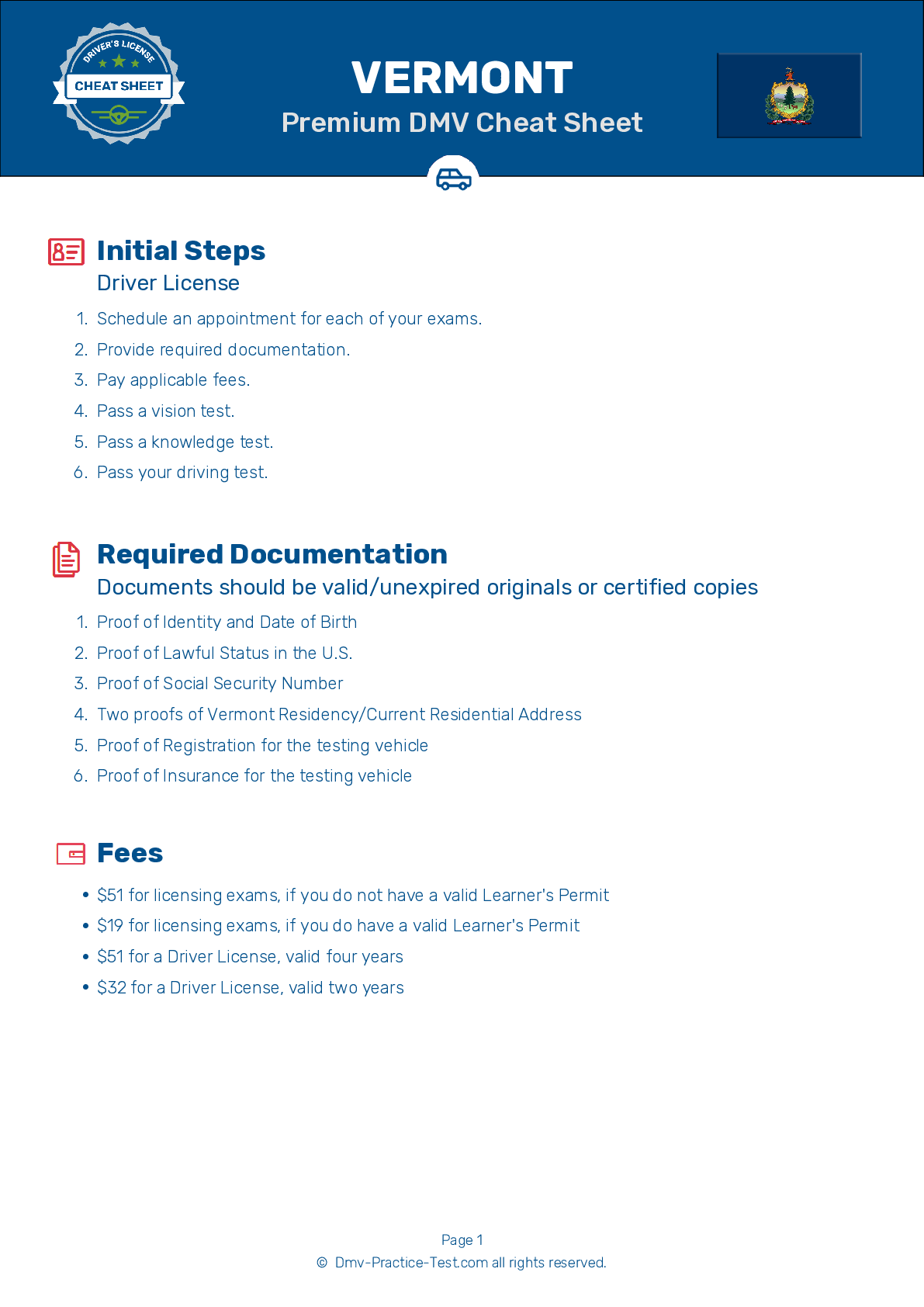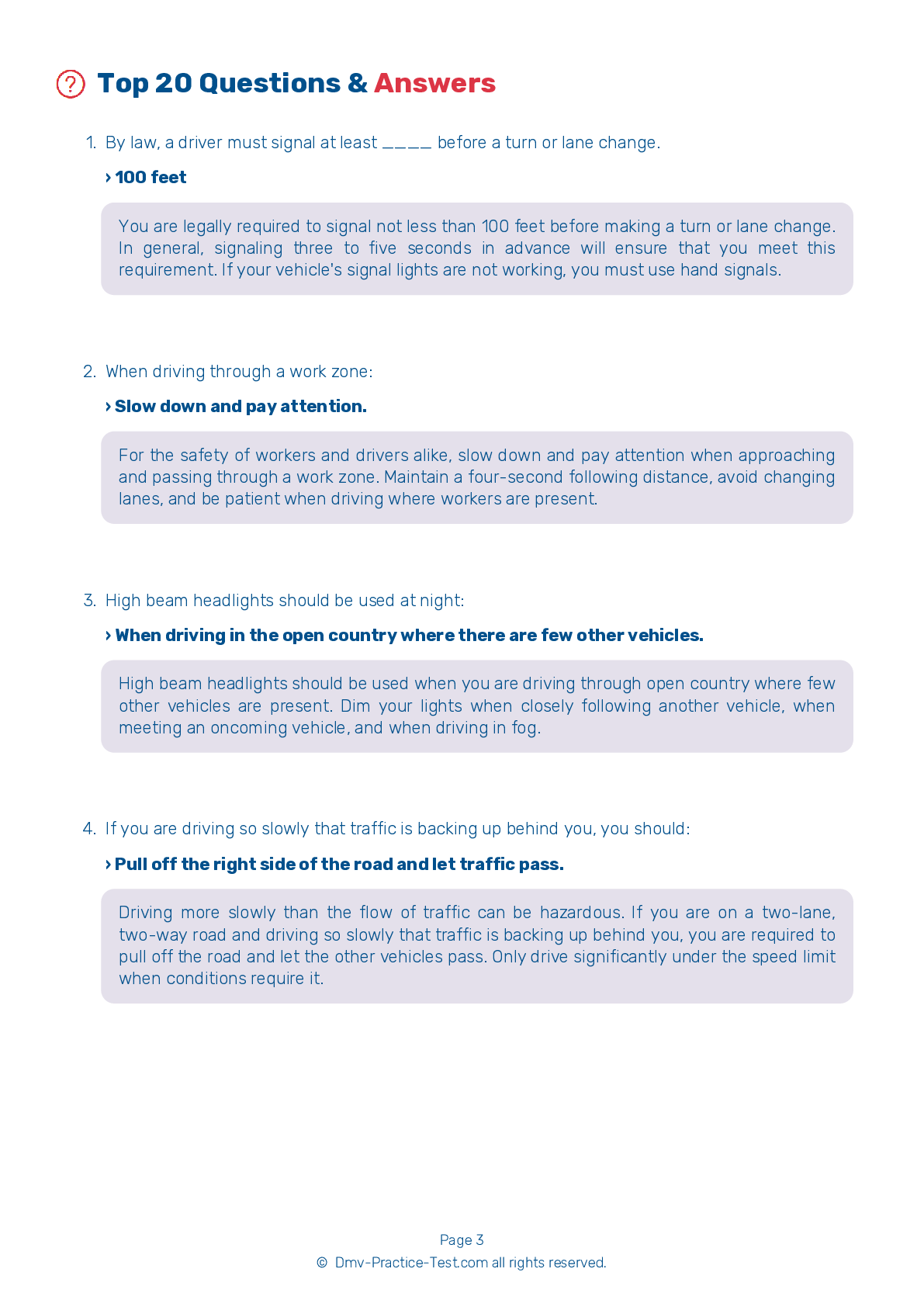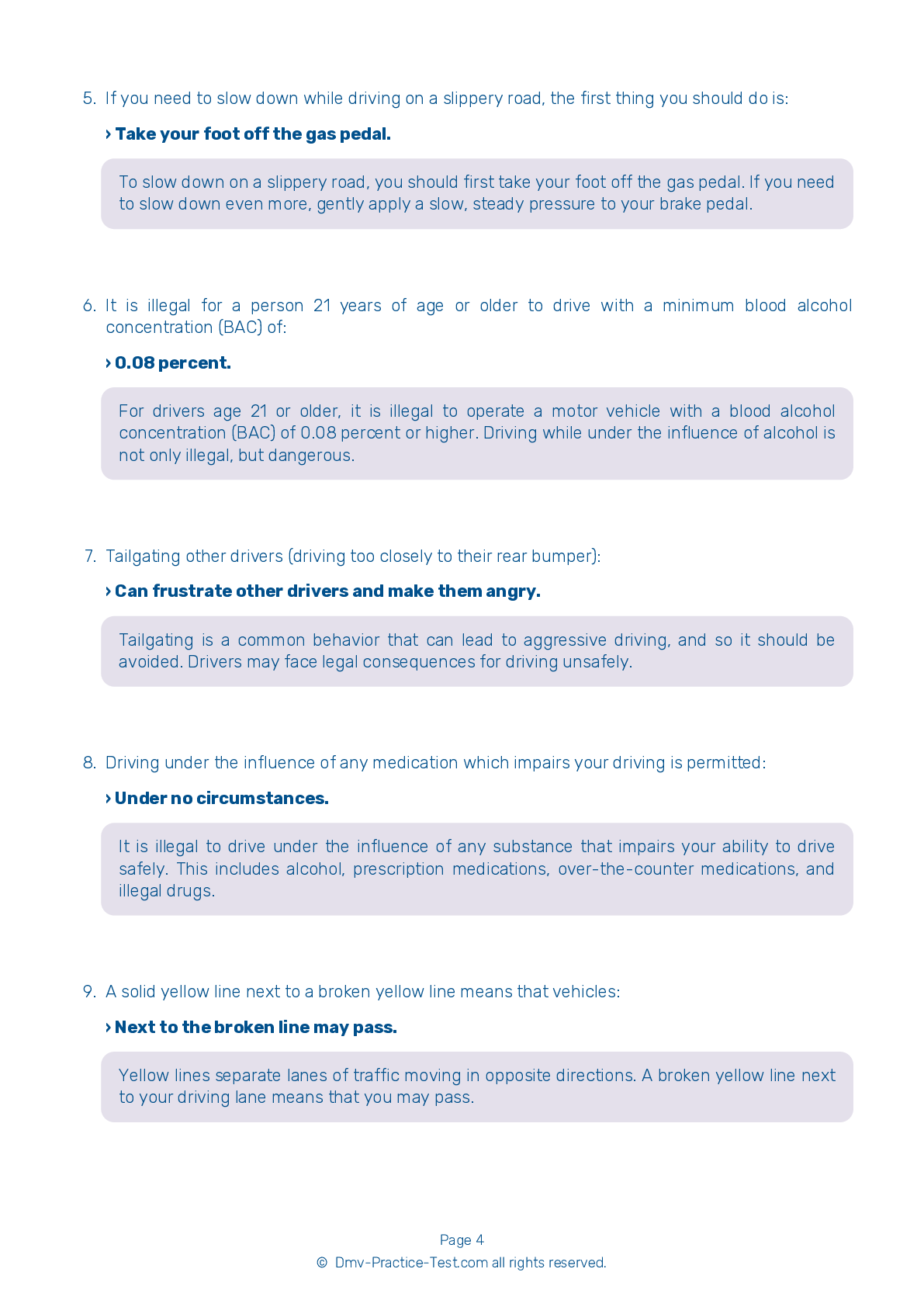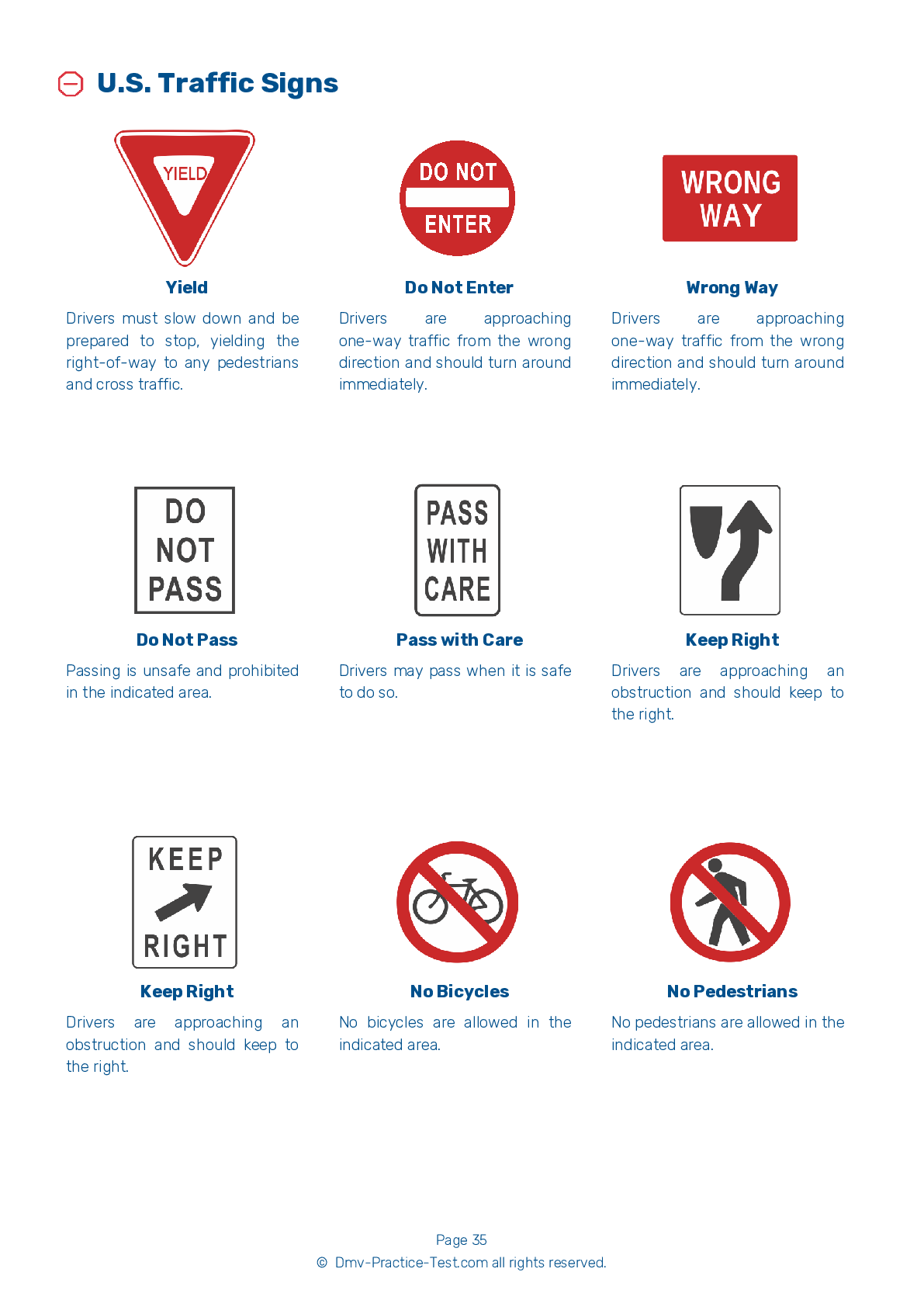FREE Vermont DMV Practice Test #5 Page 3 of 3
The Vermont DMV practise examinations have been updated for January 2026. It includes questions based on the Vermont Driver Handbook's most significant traffic signals and legislation for 2026. Use actual questions that are very similar (often identical!) to the DMV driving permit test and driver's licence exam to study for the DMV driving permit test and driver's licence exam.
On the practise exam, each question gets a tip and explanation to help you remember the concepts. The written component of the official Vermont DMV test will include questions about traffic rules, traffic signs, and driving statutes, as well as knowledge from the Driver Handbook.
To obtain a passing grade, you must correctly answer 16 of the 20 questions. Use the practise exam provided by the Vermont Department of Motor Vehicles to help you prepare for your instruction permit or driver's licence.
The DMV exam is available in several languages.
Using any kind of testing assistance will result in an automatic fail, and the DMV may take additional action against your driver's licence, so stay away from it.
14 . A bicyclist who doesn’t obey traffic laws:
All bicyclists have the same rights, duties, and responsibilities as drivers of motor vehicles. Motorists and bicyclists who do not obey traffic laws can be ticketed.
15 . This sign means:
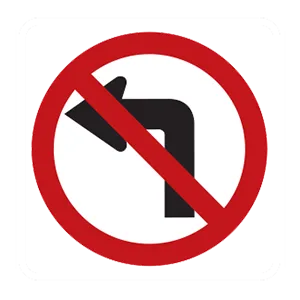
Regulation signs regulate traffic speed and movement, displaying rules which drivers must obey. This regulation sign means that left turns are prohibited.
16 . When approaching a steady red traffic light, drivers should:
A steady red traffic light indicates that drivers must come to a complete stop. Driving through a red light is against the law and is extremely dangerous. Drivers may turn right on a steady red light if there is no sign prohibiting a turn on red.
17 . When faced with an oncoming car to the left and a bicyclist to the right, you should:
When there is more than one potential hazard on the road, you should ensure that you only have to deal with one of them at a time. For example, when there is a bicyclist on the right that you want to pass and an oncoming car to the left, you should not try to squeeze between both at the same time. Instead, let the oncoming car pass, and then pass the bicyclist.
18 . When meeting a car with blinding headlights, you should:
If a vehicle comes toward you with its high beams on, look away from the headlights and toward the right side of the road until the car has passed. This will keep you from being blinded.
19 . When the driver behind you wants to pass, you should:
When the driver behind you wants to pass, you should slow down so that there is enough room in front of your vehicle for the other driver to complete their pass. This will allow them to complete the passing maneuver in less time and more easily.
20 . If an aggressive driver cuts you off, you should:
If an aggressive driver cuts you off on the roadway, stay calm and get out of their way. Trying to get even with an aggressive driver risks escalating the situation and increasing the danger.
See the exact questions that will be on the 2026 Vermont DMV exam.
99.2% of people who use the cheat sheet pass the FIRST TIME
LT gives us an insight on how the cheat sheet provided her with all the study questions she needed before taking her test.
Joe initially studied with the handbook and failed his test, he eventually found us online, studied and pass his test the first time around.
2026 Vermont | Frequently Asked Questions
1. Not checking mirrors and blind spots before changing lanes or turning.
2. Speeding or driving too slowly for the conditions or posted speed limit.
3. Not coming to a complete stop at stop signs or red lights.
4. Incorrect signalling or not signalling at all.
5. Poor parking, especially parallel parking.
Remember, practice makes perfect, so take time to hone your skills.
